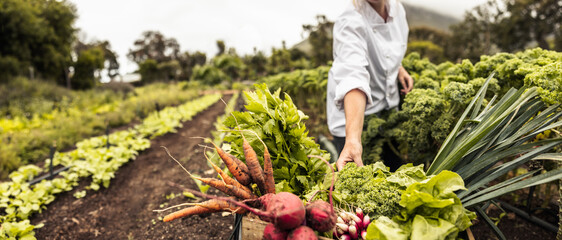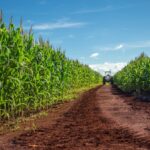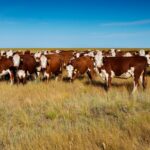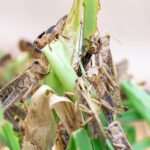Exploring sustainable farming practices in South Africa is crucial for creating a better future that ensures food security, preserves natural resources, and promotes environmental stewardship. Here are some key areas to consider:
- Conservation agriculture: This approach focuses on minimizing soil disturbance, maintaining permanent soil cover, and diversifying crop rotations. By reducing erosion, improving water retention, and enhancing soil health, conservation agriculture promotes sustainable farming practices.
- Agroforestry: Integrating trees with agricultural crops and livestock systems can provide numerous benefits. Trees help improve soil fertility, regulate water cycles, offer shade and windbreaks, and support biodiversity. Agroforestry systems also contribute to carbon sequestration and help combat climate change.
- Precision agriculture: Utilizing modern technologies such as GPS, sensors, and remote sensing allows farmers to optimize resource use. Precision agriculture enables more accurate application of fertilizers and pesticides, reduces water wastage, minimizes soil erosion, and improves overall productivity.
- Organic farming: Organic agriculture eliminates the use of synthetic fertilizers, pesticides, and genetically modified organisms (GMOs). It emphasizes soil health, biodiversity, and ecological balance. Organic farming practices promote the use of natural fertilizers, crop rotation, composting, and biological pest control methods.
- Water management: Efficient water use is essential in water-scarce regions like South Africa. Practices such as drip irrigation, rainwater harvesting, and precision watering can significantly reduce water consumption while maintaining crop productivity. Water recycling and reuse systems should also be considered.
- Crop diversification: Promoting a diverse range of crops helps improve soil fertility, reduce pest and disease pressures, and enhance food security. Encouraging traditional and indigenous crops can also contribute to cultural preservation and food sovereignty.
- Livestock management: Implementing sustainable livestock practices is crucial for reducing the environmental impact of animal agriculture. Practices like rotational grazing, feed optimization, and improved animal welfare can minimize land degradation, reduce greenhouse gas emissions, and enhance productivity.
- Renewable energy integration: Harnessing renewable energy sources, such as solar and wind power, can help farmers reduce their reliance on fossil fuels. Implementing renewable energy systems for irrigation, farm operations, and processing facilities can lead to substantial cost savings and carbon footprint reduction.
- Knowledge sharing and capacity building: Encouraging collaboration, knowledge exchange, and training programs among farmers, agricultural extension services, research institutions, and government agencies is vital. This promotes the adoption of sustainable practices and ensures the availability of up-to-date information and support.
- Policy and financial support: Governments should develop and implement supportive policies that incentivize sustainable farming practices. This includes providing subsidies, grants, and loans for farmers adopting environmentally friendly techniques. Financial institutions can play a role by offering loans specifically tailored to sustainable agriculture.
By prioritizing these sustainable farming practices, South Africa can improve agricultural productivity, safeguard natural resources, mitigate climate change impacts, and build a resilient food system for a better and more sustainable future.
Join 'Farmers Mag' WhatsApp Channel
Get the latest Farming news and tips delivered straight to your WhatsApp
CLICK HERE TO JOIN






